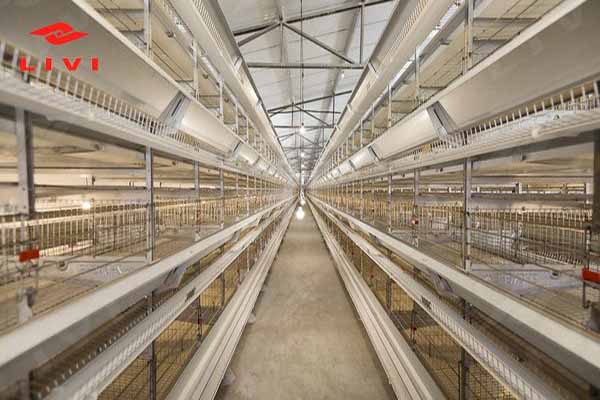How to Start a Chicken Farm for Eggs: A Comprehensive Guide
Time : 2025-04-14
Starting a chicken farm for eggs can be an exciting venture, but it’s important to go into it with a solid plan and knowledge. Whether you’re looking to start a small backyard operation or a larger commercial farm, this guide will walk you through the essential steps to get your chicken farm up and running.
1. Research and Planning
Before you dive in, it’s crucial to do your homework. Here’s what you need to consider:
1.1 Market Research
– Identify Your Market: Understand who your customers will be. Are you targeting local markets, restaurants, or retailers?
– Competitor Analysis: Look at other chicken farms in your area. What are they offering? How can you differentiate your farm?
1.2 Legal Requirements
– Permits and Licenses: Check with your local government to see what permits and licenses you’ll need to operate a chicken farm.
– Zoning Regulations: Make sure your property is zoned for agricultural use.
1.3 Business Plan
– Financial Projections: Estimate your startup costs, ongoing expenses, and potential income.
– Marketing Strategy: Plan how you’ll promote your eggs and reach your target market.
2. Choosing the Right Breed
The breed of chicken you choose will depend on your goals, climate, and the type of eggs you want to produce.
2.1 Egg-Laying Breeds
– L laying breeds: These chickens are bred specifically for egg production. Popular choices include the Rhode Island Red, White Leghorn, and Ameraucana.
– Dual-Purpose Breeds: If you’re interested in both eggs and meat, consider breeds like the Barred Plymouth Rock or the Wyandotte.
2.2 Meat Breeds
– Broiler Chickens: If you plan to produce meat, you’ll need broiler chickens. These breeds grow rapidly and are bred for meat, not eggs.
3. Building Your Coop
A well-designed coop is essential for the health and productivity of your chickens.
3.1 Size and Layout
– Space: Each chicken needs about 3 to 4 square feet of space inside the coop.
– Ventilation: Good air circulation is important to prevent moisture and odors.
– Nesting Boxes: Provide a comfortable nesting area for your hens.
3.2 Materials and Construction
– Wood: Use treated wood for the frame and siding to protect against moisture and pests.
– Roof: A sloped roof will help keep rain and snow out.
– Windows: Natural light is important for your chickens’ health.
4. Feeding and Watering
Proper nutrition and hydration are key to healthy chickens and high-quality eggs.
4.1 Feed
– Layer Pellets: These are formulated specifically for egg-laying hens.
– Supplements: Consider adding vitamins and minerals to your chickens’ diet for better egg quality.
4.2 Water
– Access: Provide fresh, clean water at all times.
– Container: Use a waterer that’s easy to clean and resistant to bacteria.
5. Health and Management
Regular care and attention to your chickens’ health will keep your farm productive.
5.1 Routine Checkups
– Molting: Be prepared for molting periods when egg production may slow down.
– Disease Prevention: Vaccinate your chickens and keep their living area clean to prevent disease.
5.2 Egg Collection
– Frequency: Collect eggs at least once a day to prevent spoilage.
– Handling: Clean your hands before and after handling eggs to keep them fresh.
6. Marketing Your Eggs
Once you have a supply of eggs, it’s time to sell them.
6.1 Direct Sales
– Farmers’ Markets: Attend local farmers’ markets to connect with customers.
– Community Supported Agriculture (CSA): Offer a CSA program where customers can purchase a share of your eggs weekly.
6.2 Online Sales
– E-commerce: Set up an online store to sell your eggs directly to customers.
– Social Media: Use platforms like Instagram and Facebook to market your farm and eggs.
7. Conclusion
Starting a chicken farm for eggs is a rewarding endeavor that requires careful planning and management. By following these steps, you’ll be well on your way to a successful farm operation. Remember, patience and dedication are key to the long-term success of your chicken farm.












